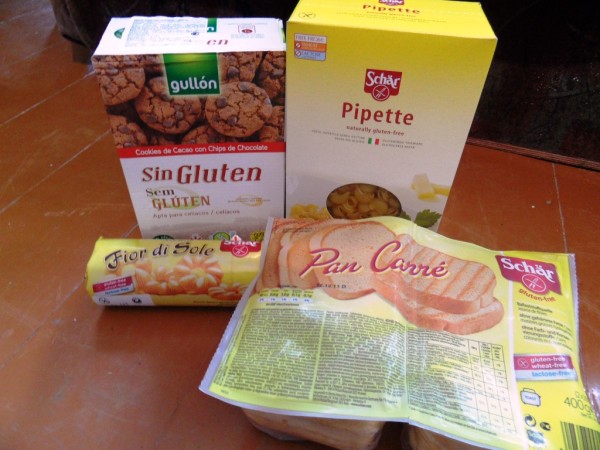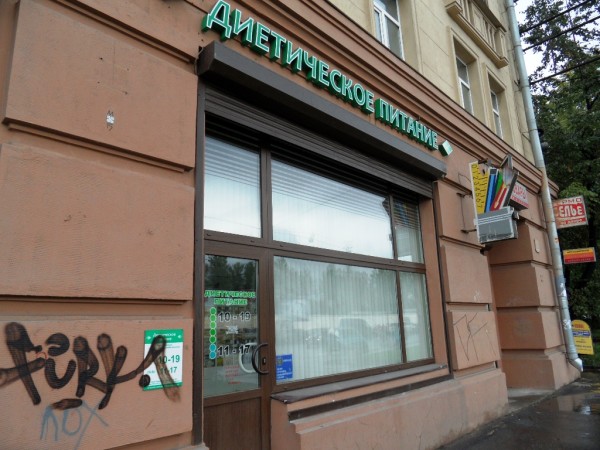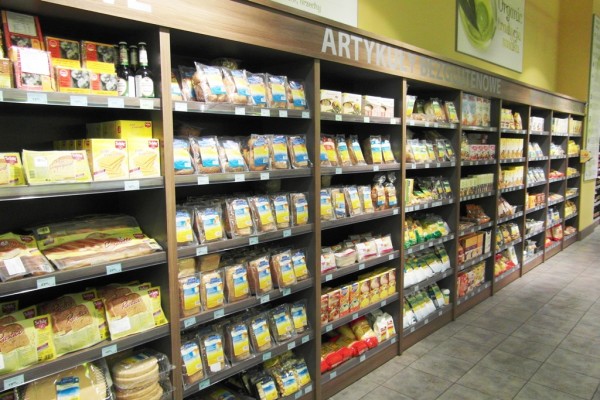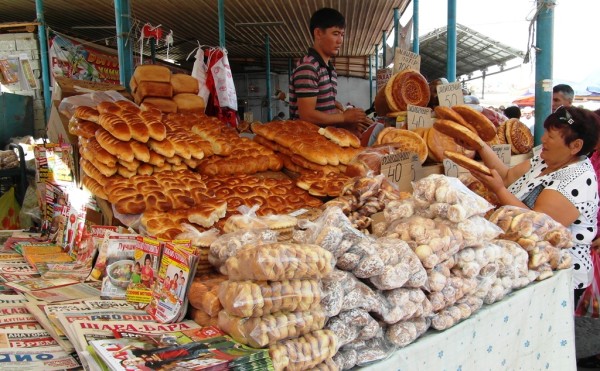
Back when I was getting ready to embark on my 13-month career break trip through the former Soviet Union, I launched another blog, called Globally Gluten Free. My plan was to chronicle my experiences trying to eat gluten free while I traveled long-term. I found that most gluten free travel tips I encountered oversimplified the matter (“pack a lot of snacks!”), especially for anyone traveling overseas for longer than a couple weeks. And as I tried to research gluten free travel tips for the countries I planned to visit, I realized there wasn’t much out there.
The blog lasted all of a few weeks, with posts on Finland and Estonia (recently republished on this site) before I just let it go. I completely lost my motivation because my overwhelming feeling after a couple months on the road was that traveling gluten free kinda sucked.
Sure, I spoke Russian and could explain that I couldn’t eat wheat, rye or barley (trying to explain gluten was a lost cause). But in most of the places I visited, that just drew odd looks. As my English-speaking guide in Ulan Ude explained to me, the concept of a food allergy just doesn’t exist in these regions. It simply doesn’t make sense to them that eating a certain food can make you sick. Indeed, my host father in Moscow likened my gluten intolerance to the fact that he used to not be able to eat tomatoes, “but then [he] ate a lot of tomatoes and it was fine.” It took a lot of explaining for me to convince him that eating a lot of wheat was not a possible solution for me!

My style of eating in most places also made it difficult to ensure I was eating gluten free. I was on a tight budget, which made eating at sit-down restaurants with waiters who I could consult about the menu a rarity. More often than not, I had to opt for local fast food, street food or cafeteria-style restaurants. The down side with these was that there often weren’t any clear gluten free options. At the fast food and cafeteria-style places, there usually wasn’t anyone around who could assure me what was in particular dishes or the lines were so long that I didn’t feel comfortable holding everything up to insist on finding out.
It was easier when I stayed in homestays since my host families generally tried very hard to accommodate me. Even my host mother in St. Petersburg who mostly ignored me managed to track down a box of gluten free cookies for me and tried to bake gluten free bread. On the other hand, even the best efforts sometimes weren’t enough. One night at my homestay in Tajikistan, I looked into my bowl of soup to see a thin noodle floating among the rice and vegetables. I quickly summoned my host and she explained that the rice and the noodles are stored in adjacent bins at the market – a stray noodle must have fallen into the rice bin. I luckily didn’t get sick and she held off on serving me any more rice the rest of the time I was there (which severely constrained my already limited diet!).

The hardest part about staying gluten free while traveling wasn’t my difficulty in finding things that were okay for me to eat. I usually could eventually find something, although there were occasional nights or travel days when lunch or dinner consisted of not much more than a Snickers bar or plain Lays potato chips (only plain – as I learned, the flavored ones almost all contain gluten).
No, the hardest part was feeling isolated from the local culture. I shared a train compartment with an elderly man and he offered me a piece of his bread. I rode in a shared taxi with several women and they insisted that I take some of their bread. Every time I arrived at someone’s home, I was offered tea and bread. Time and time again, I had to explain, “Я не могу есть хлеб” and “У меня аллергия на пшеницу” (“I cannot eat bread” and “I am allergic to wheat”). And then I just had to sit there and watch as everyone else eagerly tore apart their bread, hoping they understood and didn’t think I was rude by not eating.
Beyond bread, I missed out on being able to try a lot of local specialties.
No blini or pelmeni or pirozhki in Russia and Ukraine.
No khachapuri or lavash or hinkali in Georgia.
No manty or lagman or samsa or beshbarmak in Central Asia.
Trying the local cuisine is such a significant part of traveling that I felt like I was missing out on immersing myself in the local cultures.

So what advice do I have for others trying to travel gluten free?
Pick your countries carefully. There are places that are incredibly gluten free friendly and there are those that aren’t. Many of the places I visited definitely fell into the not-so-friendly category – mostly due to their lack of awareness of food allergies in general. On the other hand, my week in Italy was probably the best for eating as everyone in Italy knows what Celiac is and gluten free options are everywhere! Northern and Western Europe in general tend to be more knowledgeable about gluten intolerance.
Do carry cards with you in different languages explaining your gluten intolerance but don’t expect people to totally get it. Things may still get lost in translation. When I was in St. Petersburg, I tried to explain to my host sister that I couldn’t eat potato pancakes. She didn’t get it because they didn’t contain wheat, rye or barley – they just contained “meal.” After a lot of back and forth with my dictionary, I finally got her to realize that “meal” was the same as “flour,” which was made of wheat. Similarly, at a homestay in Azerbaijan, my host confused the Russian words for buckwheat and barley and after I had already bit into a dish, told me it was made of ячмень – barley. I panicked (even though it seemed like buckwheat to me), but after some online translations between Azeri, Russian and English, we confirmed that it was indeed гречиха – buckwheat – that I was eating.
Beyond the language cards, learn the different possible forms of words in the appropriate language. For example, пшеница is the word for “wheat” in Russian, but that wasn’t what usually appeared on food labels. Instead, I had to look for пшеничной муки (“wheat flour”). Luckily, I knew enough Russian grammar to realize it was the same thing, but if I hadn’t, I may have missed it.
Stock up when you can. While you won’t be able to pack enough snacks in advance to last you for weeks, you can keep an eye out for gluten free products as you travel and stock up when you find something good. I found that large, Western-style grocery stores were the best for finding products that were labeled gluten free, but I also found plenty of items in smaller stores that just happened to lack gluten. And some places surprised me, like the grocery store in Yerevan, Armenia that carried gluten free crackers and Lays Stax potato chips. I definitely stocked up!
Finally, no matter how difficult it may be and no matter how much it may negatively affect your travel experience at times, don’t let your gluten intolerance keep you from traveling. I don’t mean for this post to scare anyone with a gluten (or other) intolerance away from long-term travel, but I do want to paint a realistic picture of the challenges you may face. As much as it annoyed and frustrated me at times, I would much rather travel gluten free than not travel at all.

Hi Katie,
You said above: “Oh, I should add too – if you go through Warsaw, there is a great store in their big mall there that has a TON of gluten free products.”
Do you recall which mall and which store? Thanks!!
Ugh, sorry I don’t! It was a fairly large, centrally located mall and the store was in the bottom level. Looking at GoogleMaps, I am guessing it was Centrum Harlowe Arkadia mall.
I went to Germany 2 years ago, and I was pleasantly surprised. They had lots of gluten free options at the grocery store. And it was easy to tell because of the wheat symbol with a slash through it. Plus it said sans gluten which helped. I was in Marburg, Heidelberg, Köln, and Frankfurt. Was able to find a place in every city. 🙂
Thank you for the great advice. I’ll be traveling to Russia with my cousin in September next year. Going to Moscow, and St. Petersburg got 3 weeks. Sounds like it’s going to be a little difficult. But I think I can make it work. Lots of fruits and veggies for me lol.
Great tips! I am going to Moldova, Turkey, and Greece this summer. I feel pretty confident with Turkey and Greece (since I lived in Turkey and traveled to Greece previously). But I don’t have a clue as to what to expect in Moldova. I will keep all your tips in mind and still look forward to my trip. Thank you so much for this helpful article.
Great site Katie and wonderful advice! I am traveling to Nepal with my boyfriend next year and we’re interested in doing the same trek you did, which brought me to your site! However, my boyfriend happens to be Celiac too… so I feel lucky to have happened upon this site. Any advice for eating gf in Nepal – how was it on your trek? Thanks!
Hi Amanda – eating got fairly boring on the trek – lots of eggs, plain rice, potatoes and veggies. Beware of soy sauce – they use it often to make the rice. I had a sherpa guide who was great in communicating to the cooks at each of our guesthouses about my needs and even watched them in the kitchen or prepped my food himself at times. If you don’t have a good English speaking guide, bring cards with you explaining it.
Outside of the trek, it was a lot easier (and not as boring!). I even found a shop in Kathmandu that sold gluten free cookies!
After feeling a little deflated after eating seemingly glorious gluten free corn tortillas In guatamala only to find they dust their hands with flour and I got sick for days before I realised, I felt so much better reading this! It’s one or two bad days but I’m still getting to see the world and that can’t hold us back! I’m heading to New York where they have 100% gf restaurants now, I will be sure to enjoy!
I completely identify with your post! Tasting the local specialties is such a big part of discovering a country and culture, it is extremely frustrasting not being able to taste them. Also, in some countries, they do take it personally is you refuse to eat the food they are offering. I definitely agree with carefully choosing your destination or to really be organised and find out beforehand where you can eat, buy products and all.
Come to France, there are more and more gluten-free options! 😉
We visited St. Petersburg in Russia in May, 2014, with much concern about getting gluten-free food for me, especially given our vocabulary of only a few words in Russian.
We found three restaurants that were very accommodating after showing them a celiac restaurant card in Russian.
The first was the Library, a charming bar/cafe in a small hotel of the same name on Voznesenskiy Pr. near St. Isaac’s Cathedral. It had funny English posters on the walls and a silent movie on the TV screen. The owner was very friendly and knew enough English to help us. He was cheerful about exchanging fried potatoes for boiled potatoes to avoid possible oil contamination. The food was good (steak for me) and the atmosphere very pleasant. It is even open very late for late-night dinners.
At the corner of the same block was Tandoor, an Indian restaurant, which was also very good.
Lastly, we had a nice typical Russian meal at Restaurant Buffet “Yat” Moika Embankment, 16, off Nevsky Prospekt.
Any tips on eating gluten free in Aswan, Egypt? I have celiac disease and a soy intolerance, and I’ll be traveling in Egypt (based in Aswan) for two weeks. Do you know how to express I can’t eat wheat or flour in the local language?
Thanks!! You have a great site.
Hi Deb – sorry, I went to Egypt before I was diagnosed with Celiac so wasn’t gluten free when I was there. There is a website where you can get cards in a bunch of different languages explaining you can’t eat gluten – I would look for one in Arabic and that would help (I think similar cards exist for other allergies, like soy, too). That said, I would imagine a lot of the food you’ll encounter should be naturally gf – rice, roasted veggies, grilled meat. Falafel often is, but not always.
Love your site, which I found looking up info on the Caucausus region (hope to get there myself in August). I’ve been to 30 countries in the past year and a half, it’s actually been much of a problem than I thought it would be to be GF. I am able to have stuff like soy sauce without getting sick so I’m not going to die or something. Been in N America, Central America, Europe, SE Asia, China, Japan, and the Middle East, and probably the Middle East was easiest to be GF in my experience, Japan and Central America being next in line. I can’t have dairy either which makes things challenging, but at least I eat meat these days, and alcohol!
Thanks so much for your site!
I am in yerevan armenia right now, this post was a godsent! I wish i could email you! I have so much to say 😛 thank you for writing this.
Your welcome and thank you for your interest. I really like your blogs. 🙂 If you still on Holidays hope you having a nice time.
I’m in Yerevan now–which grocery store?! Help!
I’ve been on Gluten free diet since 8 month old. I’ve never been able to eat food with gluten, though I remember difficult times when I was young and at school. Back then 20 years ago, my mum wasn’t able to get me much of varieties of gluten free food. Now, I find it much easier and every time I visit a new country I always buy something new gluten free. So far my biggest surprise was in Sweden, where we just stop at the fast food station and for a first time ever in my life I was able to order a gluten free burger! 🙂 It was like Christmas for me. I love countries which make it accessible in any shops. Living in France now, I found out that shops here have almost no choice of gluten free food, which is disappointing. Unless I go to the special shops with bio food, which are quite good.
I remember you telling me some of this while you were traveling, and it sounded so stressful! Why try to make someone eat something if they say they can’t eat it, even if you don’t understand it?
Thanks for posting this. We are about to head to Eastern Europe – I am wheat/potato intolerant so this should be interesting… Looking up food words today!
We plan to stay in hostels and cook our own meals (and eat lots of meat, I guess!) but I definitely will miss out on the local flavors. I’ve also heard that the wheat strains in Europe might not affect me like the US wheat strains do, so I’ll experiment a little with that.
Oh wow, you can’t eat potatoes either? I ate sooo many potatoes in Eastern Europe! That said, when I stayed in hostels, I also cooked a lot of rice – and that was something that went a long way. One bag of rice could last me a couple weeks.
Not sure about the different strains of wheat, although I can say I am 100% sure I accidentally consumed gluten at least a few times on my trip and I didn’t get sick once. In the US, even the tiniest bit through cross-contamination in a restaurant leaves me with a migraine, fatigue and bloating for 2 days. I personally wouldn’t purposefully try to eat anything with gluten, but you may not need to be as concerned about cross-contamination, especially if you’re just intolerant and don’t have Celiac.
Oh, I should add too – if you go through Warsaw, there is a great store in their big mall there that has a TON of gluten free products. You can also find a lot at the Stockmann department stores in Estonia and Latvia if you go through those countries.
Yea allergies are tricky. My brother was allergic to seafood for a couple of years. He would occasionally try some and would build a rash. One day a couple of years later he ate some fish and nothing happened. He started experimenting with other seafood and low and behold he stopped producing an allergic reaction.
I know it’s not the same and for some people trying seafood when allergic could mean death but it’s funny how other people from around the world are completely lost on the issue.
These are great tips! I find it hard because people are always asking if I have Celiac’s disease (I don’t) and then I have to explain my whole weird problem that makes my gluten and dairy free status a recommendation. I can’t even imagine going to Russia and trying to explain there. The funny thing is though, gluten is harmful for more people than just Celiac. Wheat can be incredibly destroying to the gut of immunocompromised people or stressful on the body those with other issues like mine. This is true all over the world. People in Europe tend to have better diets and environment than we do in the US so they tolerate it better. I believe the news on this will be increasing in the coming years. Hopefully gluten-free diets will become more mainstream. On a side note…I am determined to create a gluten-free pierogi recipe…I have some Polish background and I love them!
I am of Polish background too, so if you’ve developed the gluten free answer to Pierogi could you share it with me. My Australian wife and American-born daughter will be extremely grateful. We live in Australia. Andrew.
I am Polish and I am too lazy to make my own gf pierogis. Mostly I buy them in gluten free store and then warm over boiling water or fry in the pan.
http://glutenex.com.pl/index.php?page=produkt&id=304
Great information. Just wanted to share that we are new to the GF world and to owning our own bakery & pizzeria. If ever traveling to the Sandusky, Ohio (Cedar Point Amusement Park) you’ll have to try us. Check out our short GF notes on our webpage and reviews on the search sites. A full “regular” menu and safe gluten-free pizza, pies, cookies and brownies.